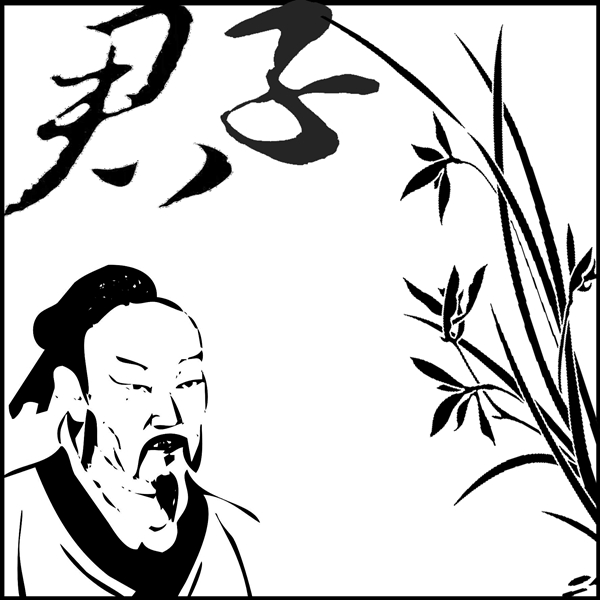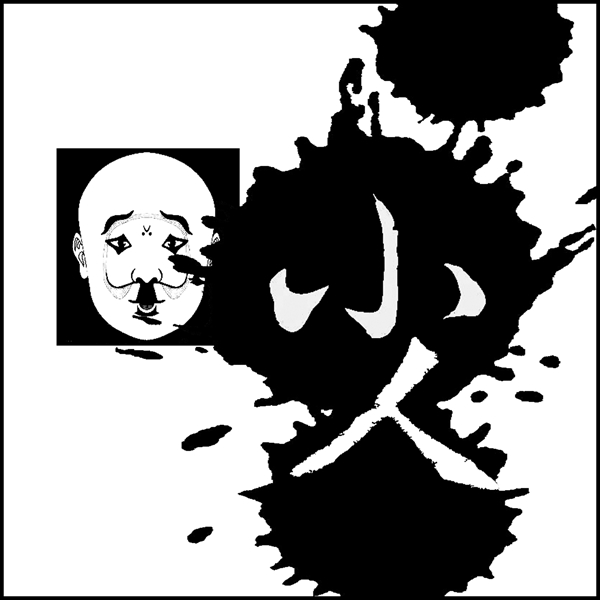引例 Citations:
君子
/jūnzǐ/
Junzi (Man of Virtue)

“君子”最初用以指称人的社会身份与地位,一般指统治者和贵族男子。但自孔子始,“君子”更多地被赋予了道德的意义,德行出众者被称为“君子”,反之为“小人”。。在儒家传统中,“君子”成为一种介乎士和圣贤之间的人格理想,它标志着道德人格的确立。。“君子”有志于追寻和实践作为价值理想的“道”,并把“道”而不是权力或利益等视为生命意义的根本。
Junzi (君子) was originally used to indicate a person’s social status, generally referring to a ruler or a member of the aristocracy. Beginning with Confucius, the term acquired an additional moral dimension and came to mean someone of true virtue. The opposite of junzi is xiaoren (小人), which roughly means the “petty men.” In the Confucian tradition, junzi is someone who is above a scholar and below a sage in terms of moral influence. A man of virtue pursues and practices the ideal known as Dao and regards Dao as the fundamental meaning of life above power or gains.
引例 Citations:
◎君子喻于义,小人喻于利。。(《论语·里仁》)
(君子知晓并遵循义,小人知晓并追逐利。)
A man of virtue understands and observes what is morally right; while a petty man only has his eyes on and goes after what brings personal gains. (The Analects)
◎君子,成德之名。。(朱熹《论语集注》)
(君子是对道德成就者的称谓。)
A man of virtue is someone who has achieved moral integrity. (Zhu Xi: The Analects Variorum)
小人
/xiǎorén/
Petty Man

“小人”最初用以表明人的社会身份与地位,通常指被统治者或地位低下之人。后世又以人的德行高下来界定“小人”。德行卑下者被称作“小人”(与“君子”相对),“小人”只关注和追逐个人的权力或利益,为了获取私利不惜违背道义,缺乏对“道”的理解与尊重。
The term was originally used to indicate a person’s social status, usually referring to the rulers’ subjects or those low in social ranking. Later generations also used the term to indicate one’s moral standard in a disapproving way. Those of base character were called petty men as opposed to men of virtue. A petty man only pursues his personal interests or profits, even by violating morality and righteousness; and such people have no understanding of or regard for Dao.
引例 Citations:
◎君子喻于义,小人喻于利。(《论语·里仁》)
(君子知晓并遵循义,小人知晓并追逐利。)
A man of virtue understands and observes what is morally right; while a petty man only has his eyes on and goes after what brings personal gains. (The Analects)
◎苟安务得,所以为小人。。(朱熹《论语集注》)
(苟且偷安务求得利,因此是小人。)
They are petty men because they only seek ease and comfort of the moment and pursue personal gains. (Zhu Xi: The Analects Variorum)